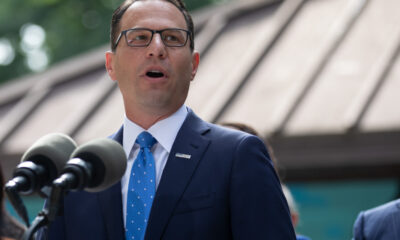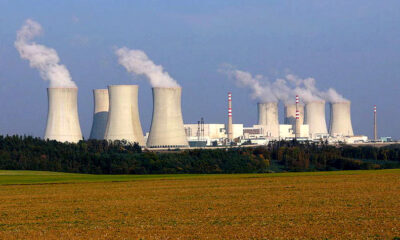Executive
Feel-Good Environmental Regulations Won’t Save the Planet, But They Do Harm Consumers
California especially – and the Biden administration – like to make feel-good rules that will harm consumers and do nothing for the planet.

The fight against climate change is increasingly riddled with lawmakers’ feel-good attempts to save the planet by imposing top-down regulations that do nothing in the way of meaningfully reducing global temperatures or cutting pollution. However, these “feel-good” regulations have a familiar habit of harming consumers by eliminating popular goods and services or making them more expensive.
Feel-good regulation against plastic grocery bags
The latest example of such a regulation comes courtesy of California, where lawmakers recently passed a second ban on plastic grocery bags after the first attempt ended in failure. The first ban, SB 270—which took effect in 2014—prohibited grocery stores from distributing single-use plastic bags at checkout. It was designed to reduce plastic waste and encourage consumers to use reusable bags.
However, a study published by the California consumer advocacy organization CALPIRG recently found that the ban may have inadvertently led to a 47% jump in plastic bag waste between 2014 and 2022 due to consumers’ tendency to throw away thicker reusable plastic bags after a single use. That means that rather than reduce plastic waste, SB 270 created more of it, all the while charging consumers 10 cents per reusable bag. Plastic bag bans in other states have produced similar results, such as in New Jersey where plastic consumption was found to have tripled after the ban took effect.
While California policymakers now hope to close this apparent loophole by prohibiting grocery stores from selling thicker plastic bags and requiring them to offer only recycled paper bags at checkout, it is not difficult to envision there being additional unintended consequences. Policymakers are trying to control consumers’ subjective behavior and preferences—a strategy that rarely, if ever, works.
Plastic straws? AYFK?
Other noteworthy examples of environmental regulatory failures include plastic straw bans. Motivated by cliché slogans like “The Last Plastic Straw Campaign,” which rely on viral turtle videos to drum up public support, policymakers have passed bans on plastic straws in states and cities across the country. Supporters argue such bans reduce plastic waste—some of which makes its way into rivers and landfills—while encouraging consumers to use reusable or paper straws. However, the success of such bans has been questionable at best, as plastic straws make up a negligible amount of plastic waste. Moreover, supposed green alternatives like paper straws have been found to pose their own environmental challenges, such as being comprised of greater amounts of water-resistant forever chemicals that are slow to biodegrade.
Bans on gas appliances also seem to be a fan favorite of policymakers who see natural gas and fossil fuel hook-ups as antithetical to a carbon-free future. Cities like Los Angeles, Seattle, and San Francisco have each recently implemented such bans in new buildings, as has the state of New York. While policymakers say such bans are needed to help curb greenhouse gas emissions, they require residents to make unnecessary sacrifices, such as using less popular appliances like gas stoves that are slower to heat up, provide less precise temperature control, and often mean higher monthly bills.
It won’t reduce carbon emissions if the electric power is gas- or oil-generated
It is also worth noting that eliminating gas appliances has little impact on reducing carbon emissions if the city or state derives its power from oil or natural gas. According to the U.S. Energy Information Administration, 60% of U.S. electricity generation still comes from fossil fuels, and no state relies entirely on renewable energy. Likewise, most large population centers rely on many different forms of energy to meet their needs. Bans on gas appliances, straws, and plastic bags will not change consumer preferences, but they will deprive them of choice.
Countless other feel-good attempts at environmental regulation by policymakers intent on fighting climate change exist and many exact a similar toll on consumers, whether they be water-saving faucet requirements that reduce flow rates, bans on incandescent light bulbs, or restrictions on the type of yard a homeowner can have. While not all such regulations are bad or overly burdensome, they do quickly add up and have the overall accumulative effect of limiting people’s freedom to decide what good or service works best for them. While some Americans may view these limits as a necessary sacrifice to help save the planet, chances are most would not feel that way if they learned few meaningfully move the needle on halting climate change or reducing waste.
This article was originally published by RealClearEnergy and made available via RealClearWire.
Nate Scherer is a policy analyst with the American Consumer Institute, a nonprofit education and research organization.
-

 Accountability4 days ago
Accountability4 days agoWaste of the Day: Principal Bought Lobster with School Funds
-

 Civilization1 day ago
Civilization1 day agoWhy Europe Shouldn’t Be Upset at Trump’s Venezuelan Actions
-

 Executive2 days ago
Executive2 days agoHow Relaxed COVID-Era Rules Fueled Minnesota’s Biggest Scam
-

 Constitution3 days ago
Constitution3 days agoTrump, Canada, and the Constitutional Problem Beneath the Bridge
-

 Christianity Today1 day ago
Christianity Today1 day agoSurprising Revival: Gen Z Men & Highly Educated Lead Return to Religion
-

 Civilization2 days ago
Civilization2 days agoThe End of Purple States and Competitive Districts
-

 Executive2 days ago
Executive2 days agoWaste of the Day: Can You Hear Me Now?
-

 Civilization5 days ago
Civilization5 days agoThe Conundrum of President Donald J. Trump














